I went behind the scenes at JFK airport to see how Delta is overhauling its airport experience to try to convince flyers air travel is safe
Thomas Pallini

- Delta Air Lines has spent the past six months overhauling the airport experience and the result is an ultra-safe environment that will hopefully ease the public back into flying.
- Social distancing signage, in-depth cleanings, and reminders about what Delta is doing to keep flyers safe can now be found in every aspect of the airport experience.
- Enhanced measures onboard the aircraft also including fogging and built-in hand sanitizer dispensers are also becoming standard for every flight.
One of the major roadblocks that the airlines are facing on the road to recovery is convincing flyers that air travel is safe.
Fears of the coronavirus' spread onboard airplanes have played a role in keeping flyers on the ground for most of the spring, summer, and now into fall. Airlines haven't yet found the perfect formula but are constantly evaluating ways of instilling the confidence to travel back into the minds of the American public.
Since March, Delta Air Lines has been overhauling its health and safety standards in an effort to be ready for when the world returns to the skies in numbers seen before the pandemic.
Business Insider flew on Delta in June and found that the airline was leading its top competitors – American Airlines, United Airlines, and Southwest Airlines, in health and safety largely because of how its implemented new peace of mind commitments while largely maintaining the pre-pandemic aspects of flying that travelers have come to expect. But the airline hasn't stopped there and used the summer to continue upgrading its facilities and onboard services just in time for the holidays.
Delta invited Business Insider to its hub at John F. Kennedy International Airport to see how the flying experience has changed even more so from our last time in the skies with the airline four months ago.
Here's what we saw.
This is Terminal 4 at John F. Kennedy International Airport, home to countless international airlines carrying thousands of passengers every day.
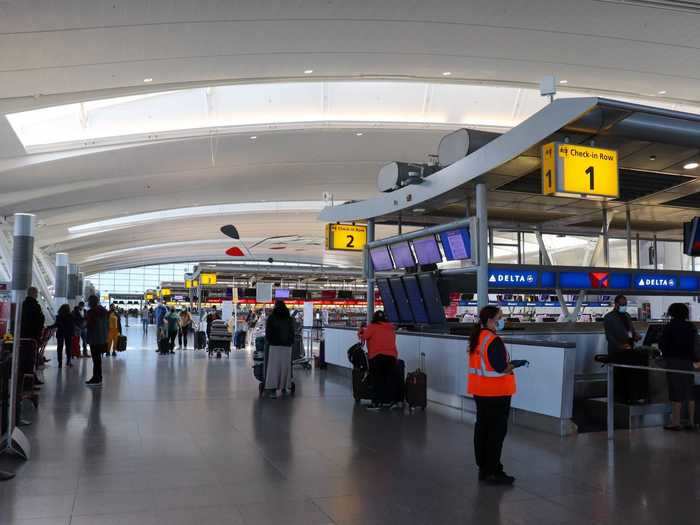
Its largest tenant is Delta Air Lines, which maintains an extensive domestic and international hub here in New York.
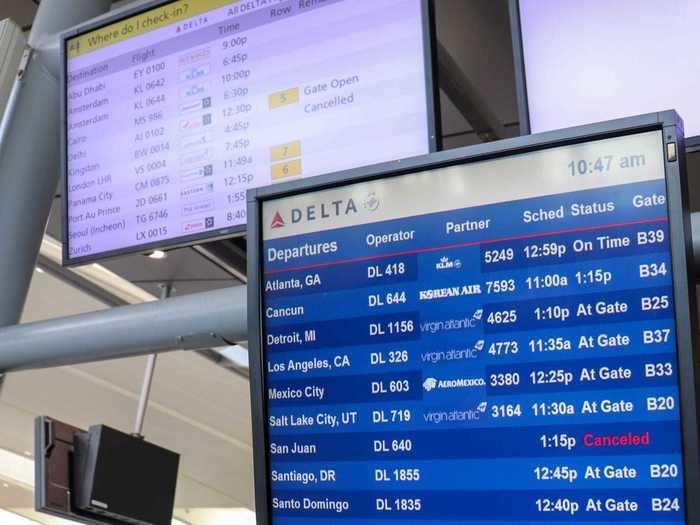
For most returning travelers, this is the last sight they want to see when arriving at the airport during a pandemic. But it's not as scary as one might think.
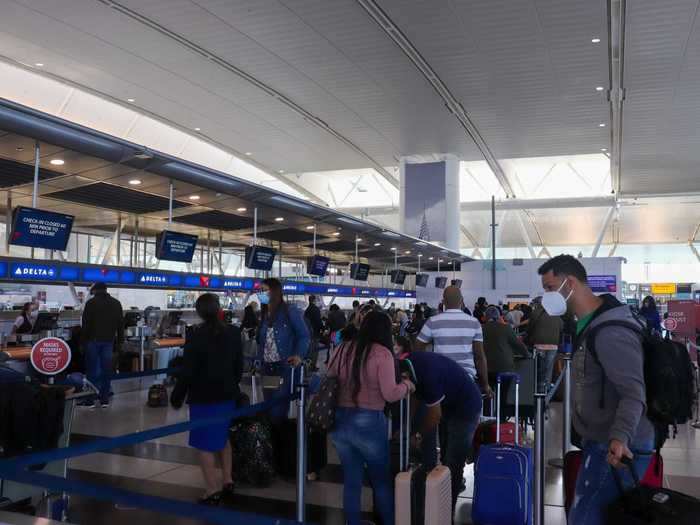
Before Delta passengers even arrive here at the terminal, they'll have received text messages and emails informing them of the new realities of travel and the health protocols that Delta has put in place. And at check-in, they'll have to acknowledge a health declaration and agree to follow Delta's new rules regarding face coverings.
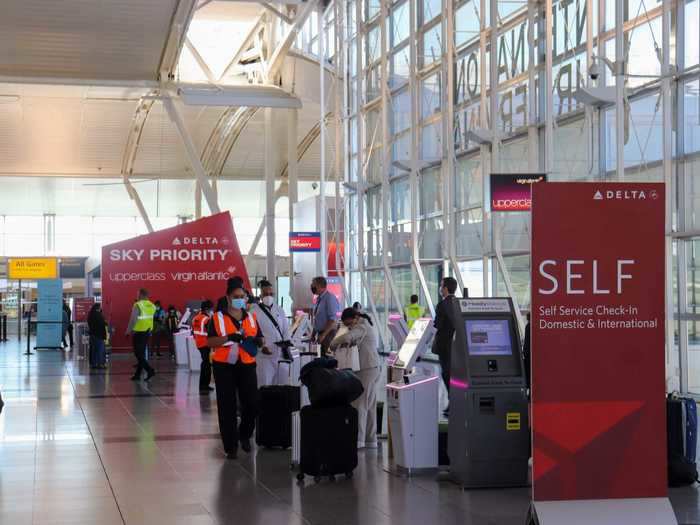
Those who need to check a bag or go to the ticket counter will immediately notice signage and reminders along the lines to help ensure social distancing from start to finish.
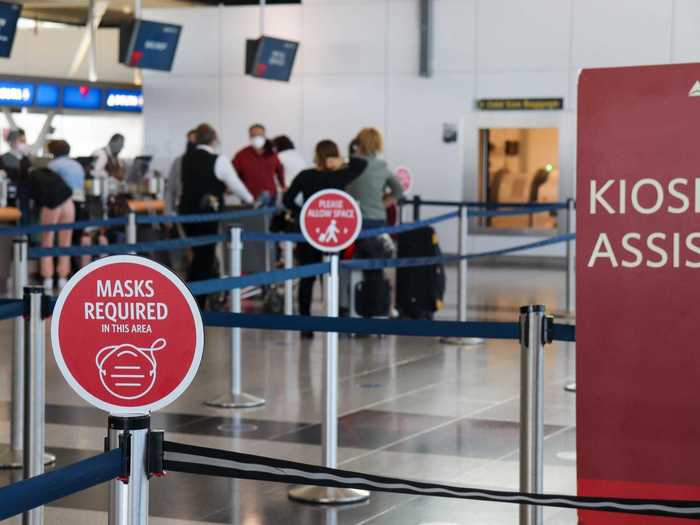
It starts with a hand sanitizer station at the start of the line...
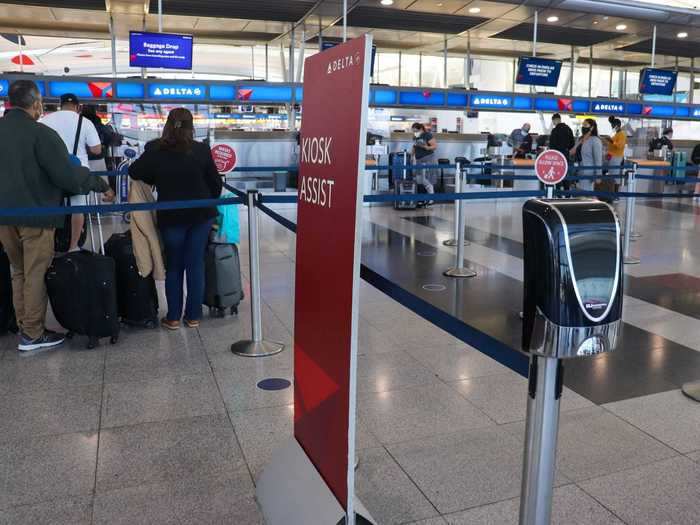
Followed by floor placards and reminders to allow space from person to person...
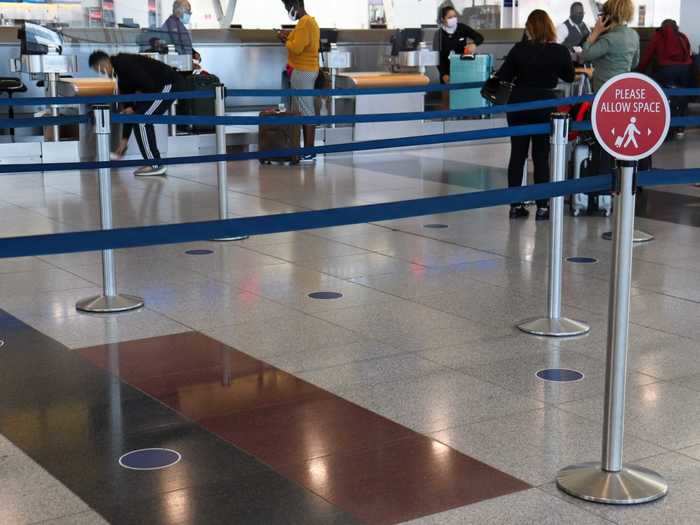
And ends with plexiglass partitions at the ticket counter.
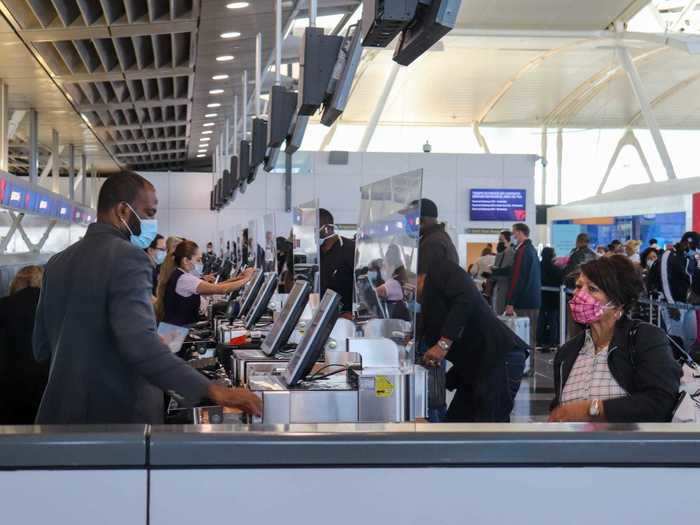
These partitions are becoming the new normal at airports across the country. Delta has them installed at every ticket counter, help desk, and gate in the terminal.
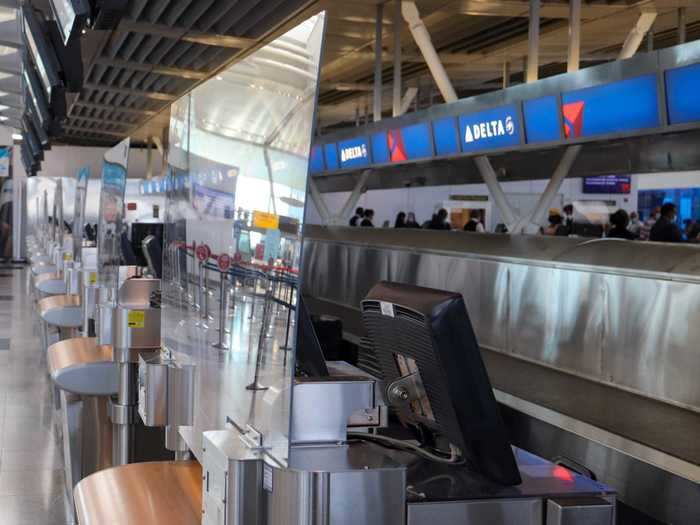
Cleaners are also dispatched to proactively clean and wipe down self-serve kiosks.
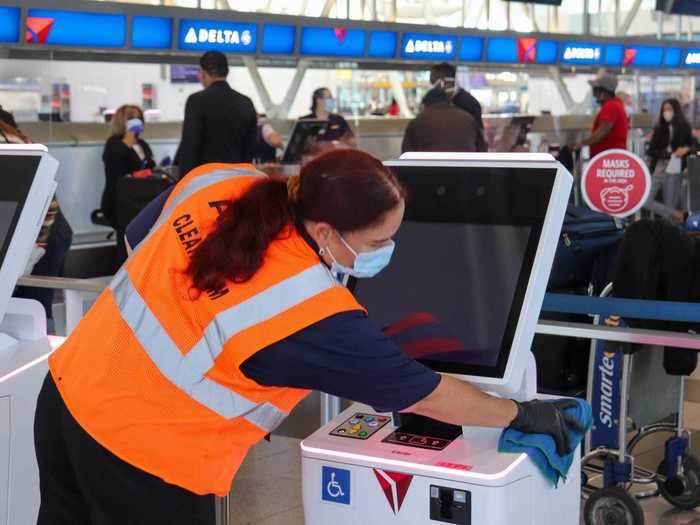
They're also spaced to allow for distancing while hand sanitizer and wipe stations are located nearby. If passengers have no bags to check, using the Delta mobile application to retrieve a boarding pass can also be a safer alternative.
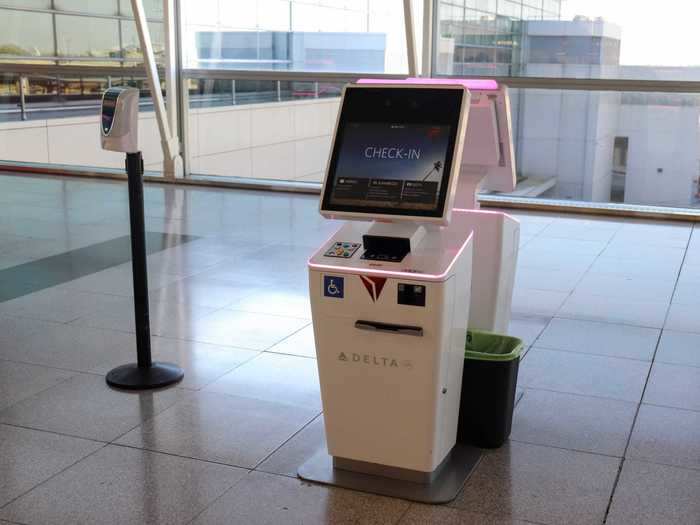
And then it's on to the gate, where the Transportation Security Administration has debuted new protocols like the use of antimicrobial bins, plexiglass booths for officers, and self-service ID readers.
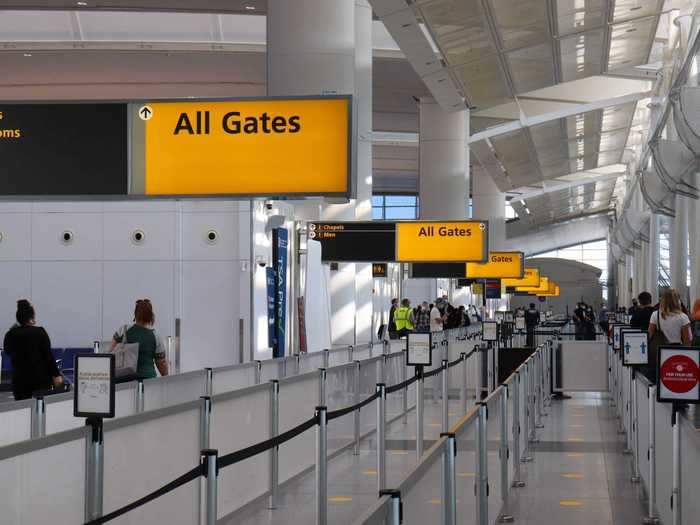
Most of the security screening experience is out of Delta's control but the airline does partner with CLEAR, a service that uses biometrics to speed up the ID check portion of the screening process and offers front of the line privileges for an annual fee.
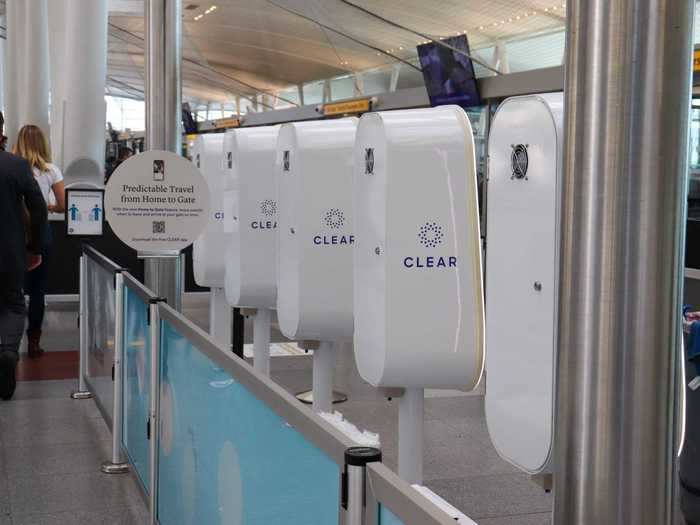
Delta flyers who need wheelchair assistance will notice that the attendant is a Delta employee and not of a third-party company. Bringing that job in-house is one of the ways Delta can ensure its standards are being met.
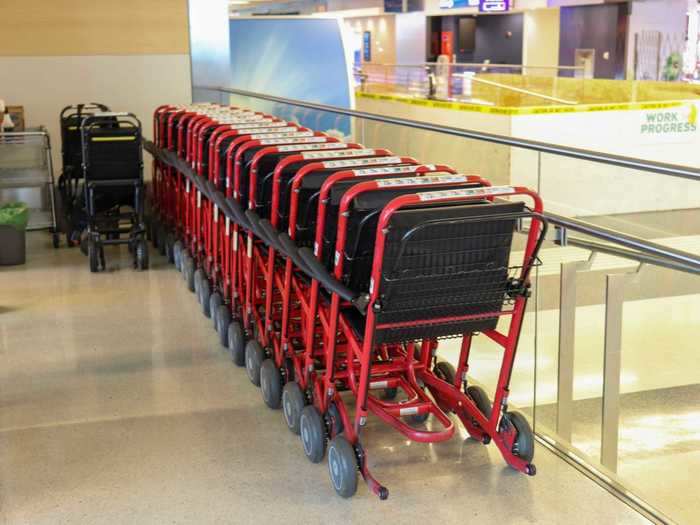
But for all the pre-security hustle and bustle, the interior of the terminal is still largely quiet with most non-essential businesses closed.
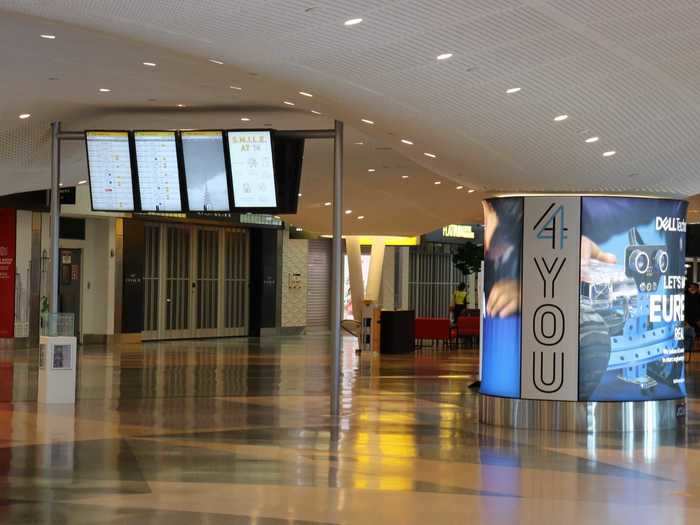
Delta's pre-trip text reminder includes information about airport businesses for this reason.
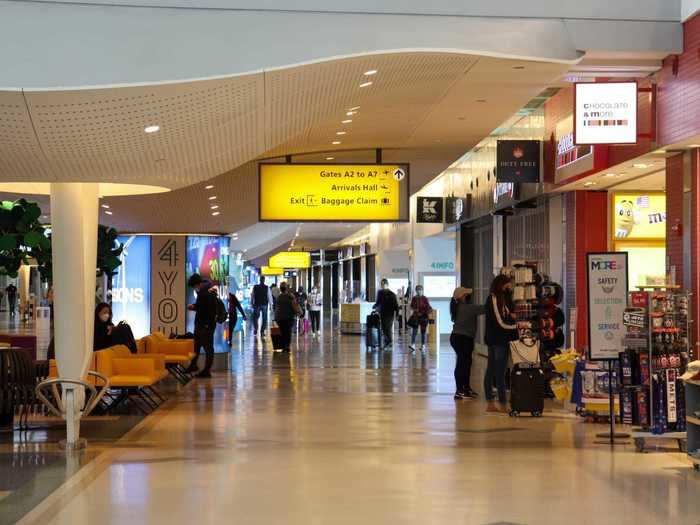
Passengers on all airlines should consider bringing food and comfort items from home – as long as they meet TSA requirements – since the in-flight service has been a casualty of the pandemic.
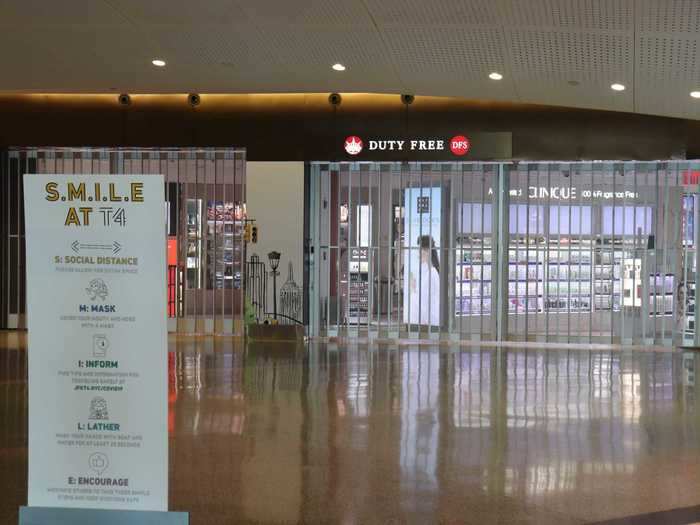
Every seating area in the terminal also has seats blocked off for social distancing.
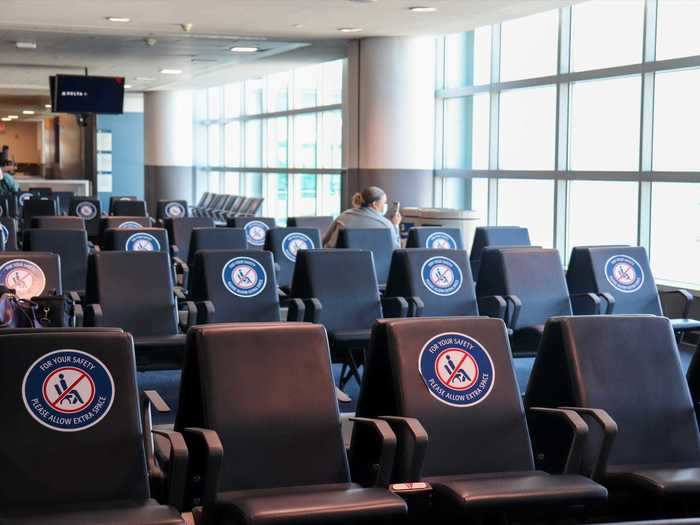
"Please allow some extra space" could be the airline's new slogan as the phrase can be found on placards at nearly every stage of the airport experience.
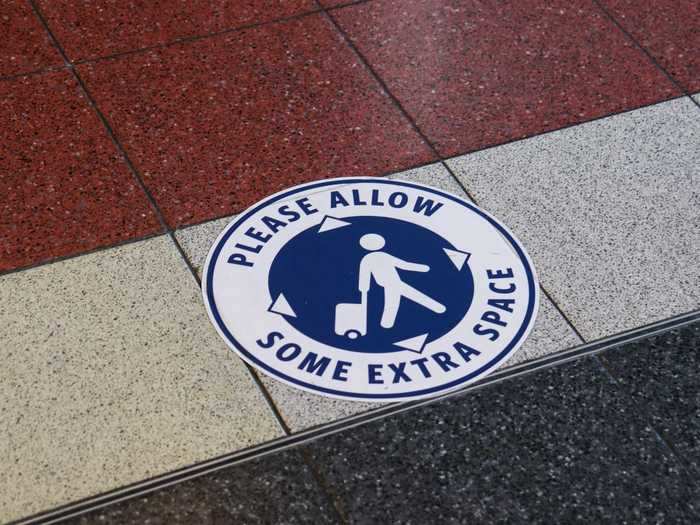
It's typically every other seat that's blocked and although the divide is not exactly six feet, face coverings help offer that extra layer of protection. The airport requires face coverings to be worn, except when eating or drinking.
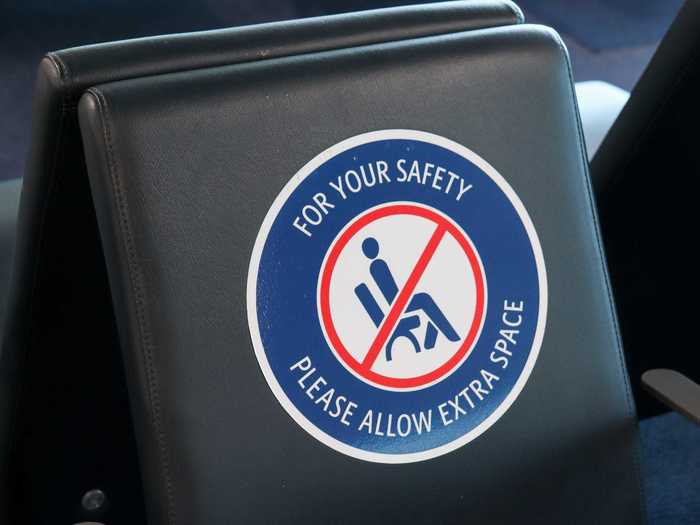
There's also no shortage of open seats as the terminal isn't at all near its normal passenger levels.
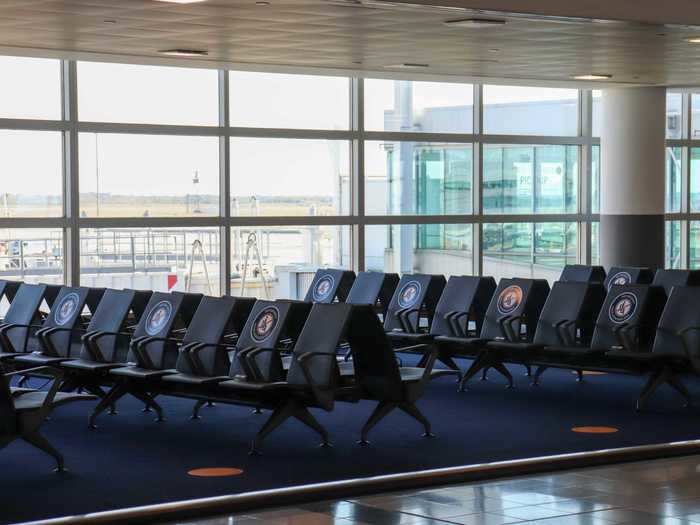
Premium flyers can also head to the open Delta Sky Club while they wait if they have access to it.
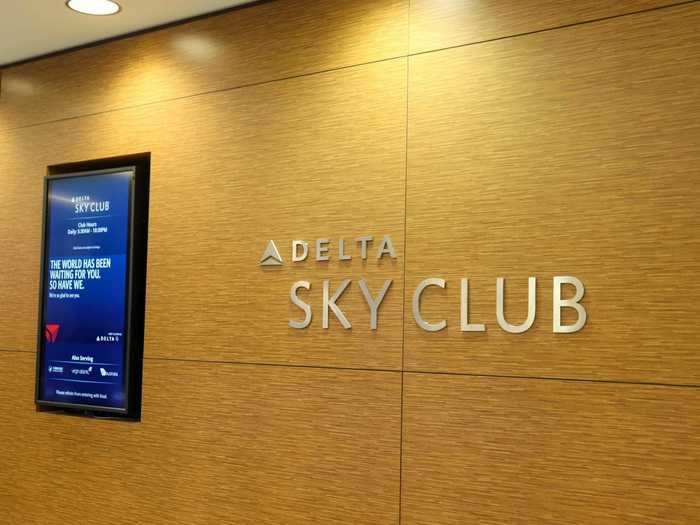
The gate area then mirrors the check-in area as Delta has installed plexiglass partitions at the counter...
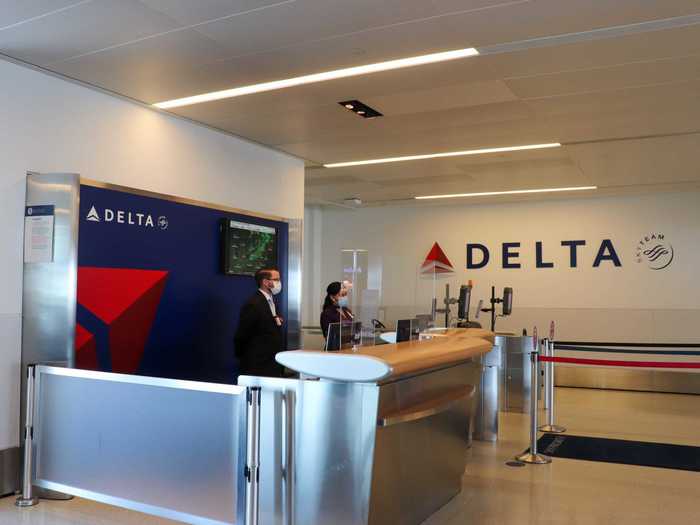
More placards and signage...
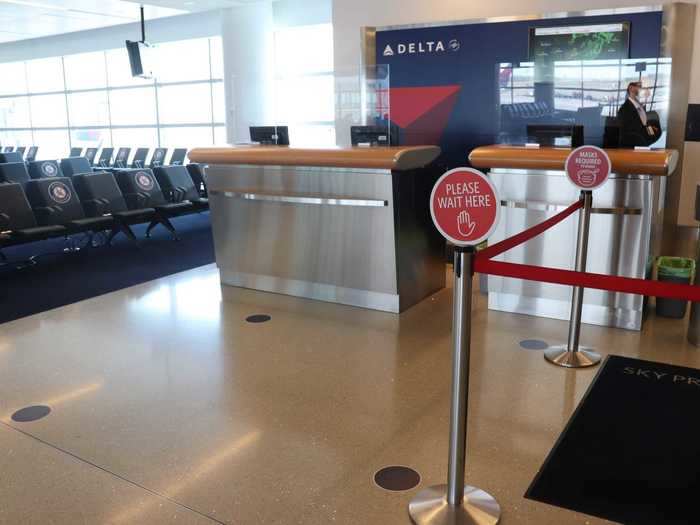
And hand sanitizer stations.
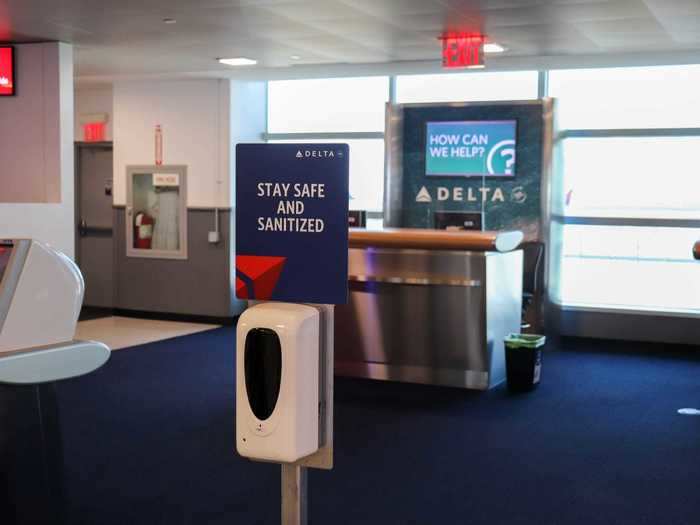
Most Delta gates at JFK also have biometric boarding gates where passengers stand in front of a camera instead of handing their boarding pass to an agent. The service is typically available on international flights where biometric data is taken from a traveler's passport.
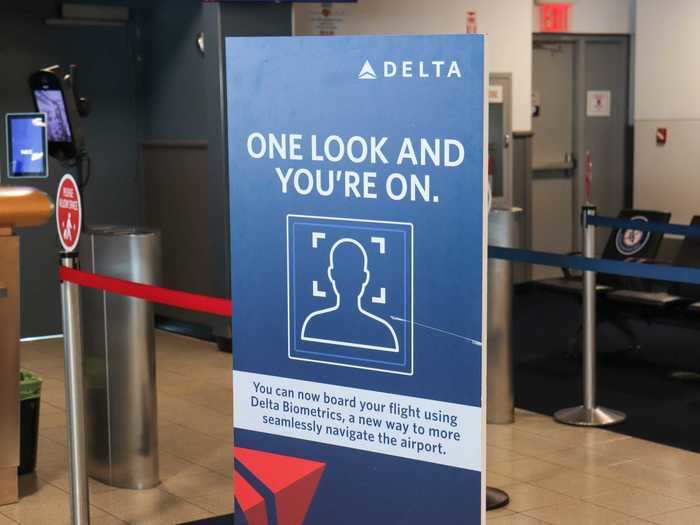
The physical additions are just the tip of the iceberg as communication also plays a vital role at the gate.
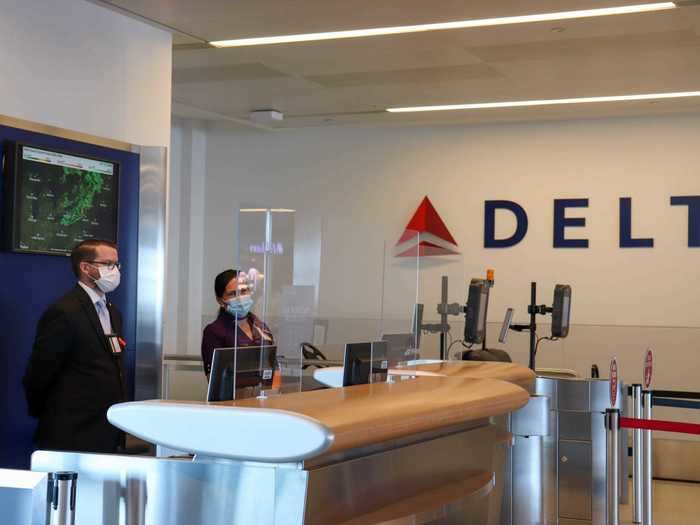
New scripts that convey Delta's commitment to health and safety have been created for agents to recite in an effort to further instill peace of mind about flying.
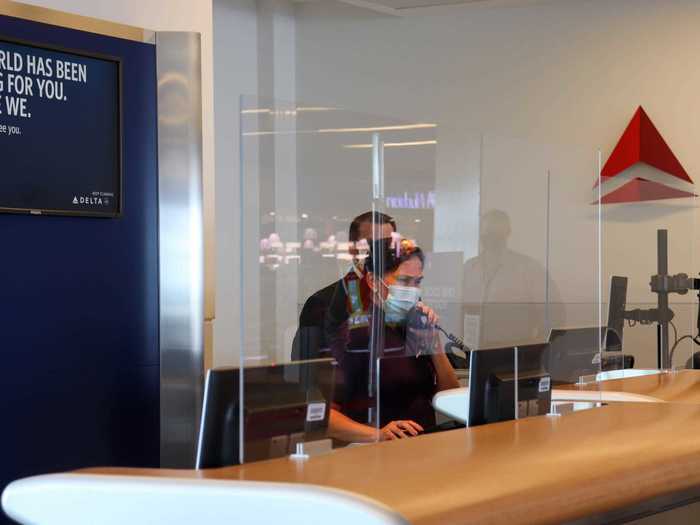
And even before the announcement, screens above the gate area are constantly reminding passengers of all the measures being taken by Delta including blocking middle seats...
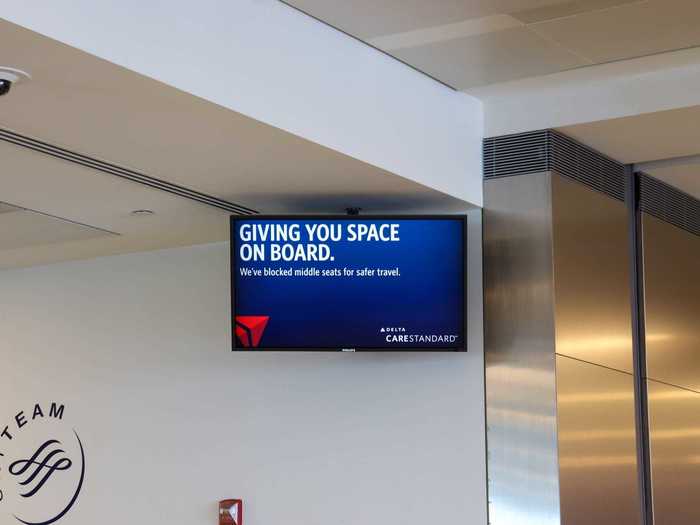
And requiring masks onboard.
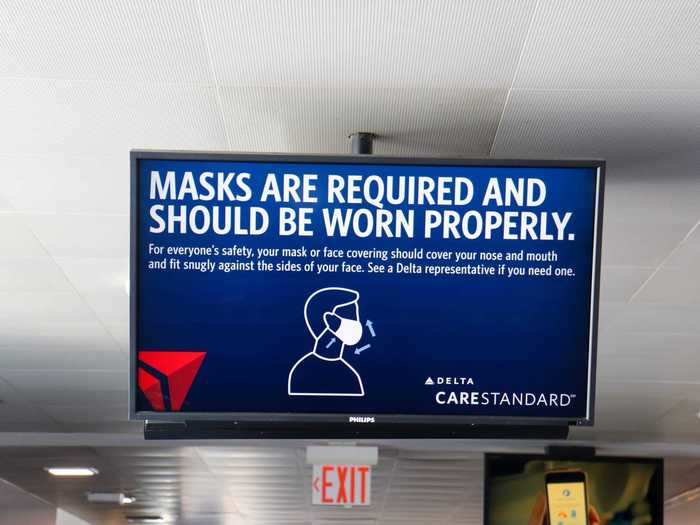
Short videos also play giving passengers a visual of the updated cleaning procedures for the aircraft.
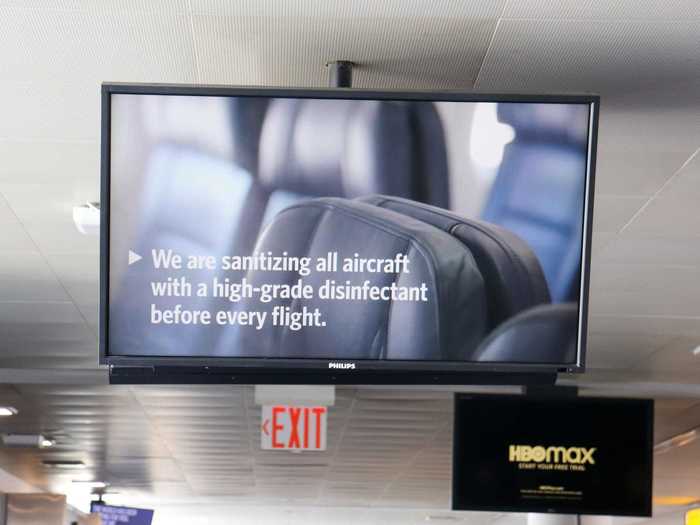
And when passengers see this message...
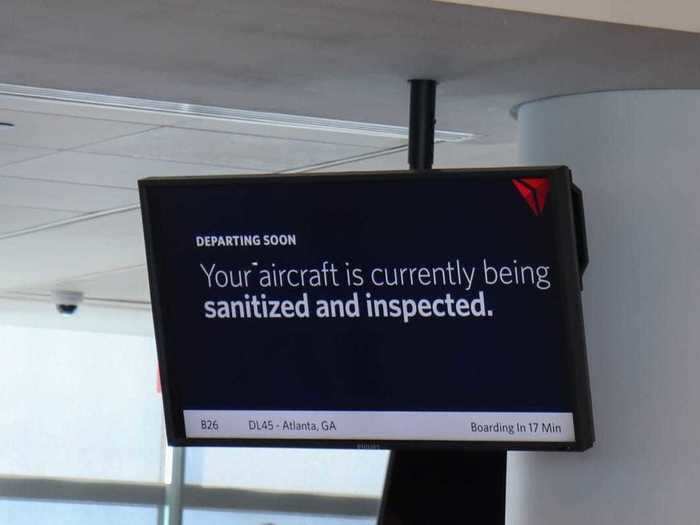
This is what's actually going on inside the plane.
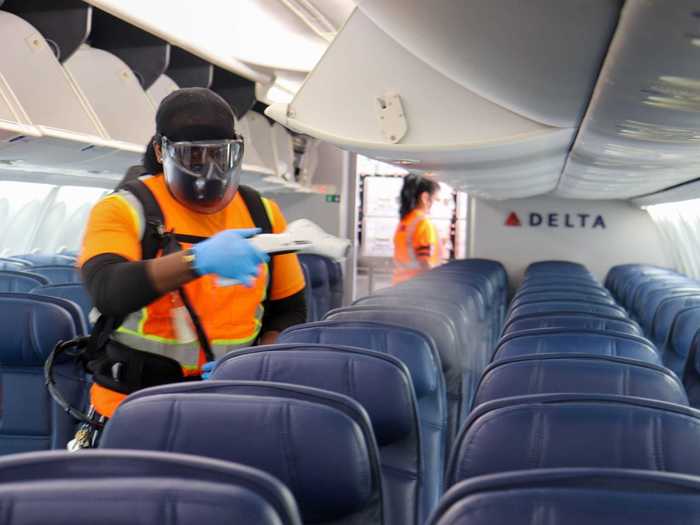
Most major airlines have adopted what is known as fogging into their cleaning procedures.
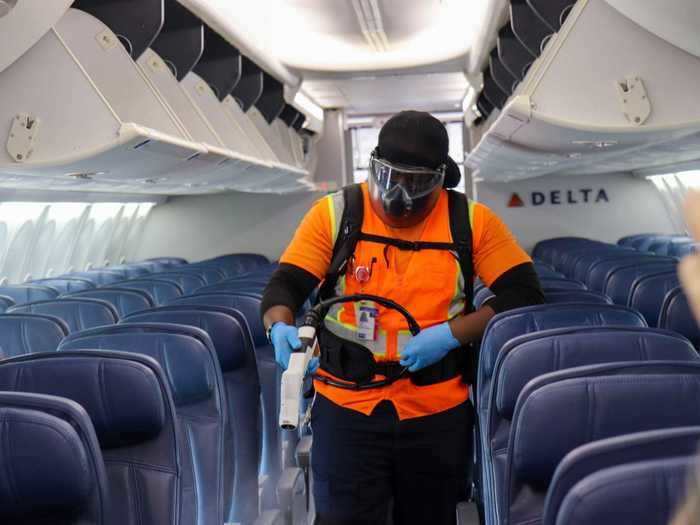
It involves spraying a disinfectant using an electrostatic sprayer.
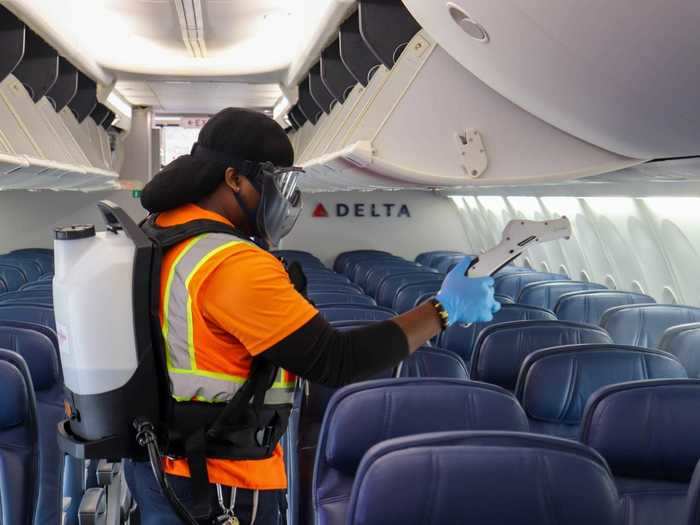
A cleaner walks through the cabin spraying all surfaces, including inside the overhead bins,
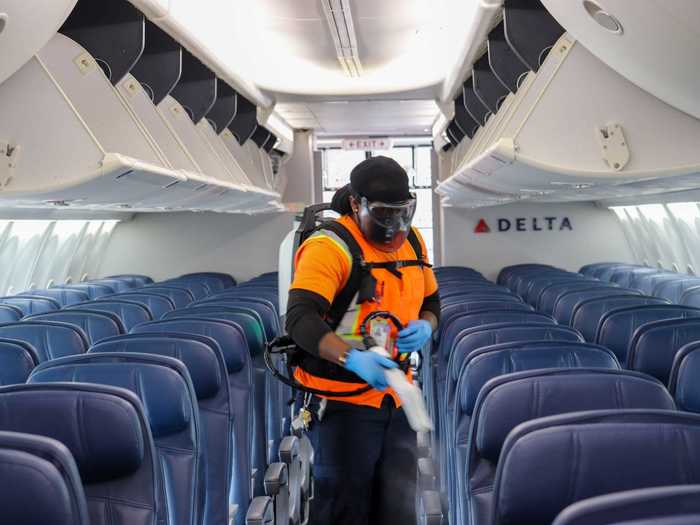
The electrically-charged disinfectant then sticks to the seats and kills any pathogens.
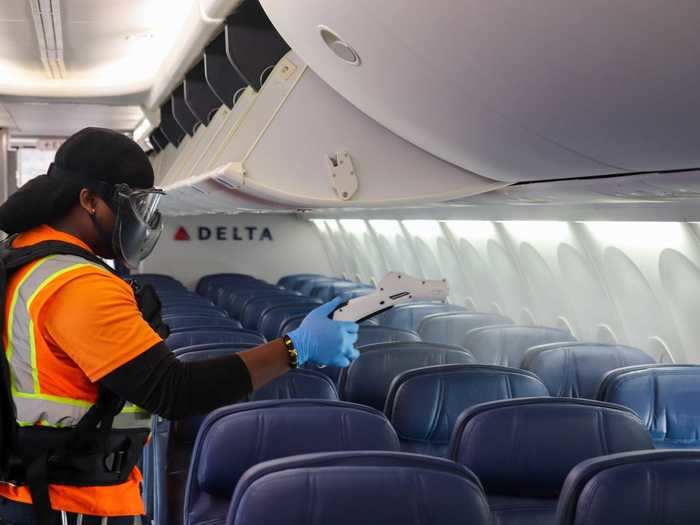
Delta fogs aircraft before every single flight, in addition to physically wiping and cleaning surfaces.
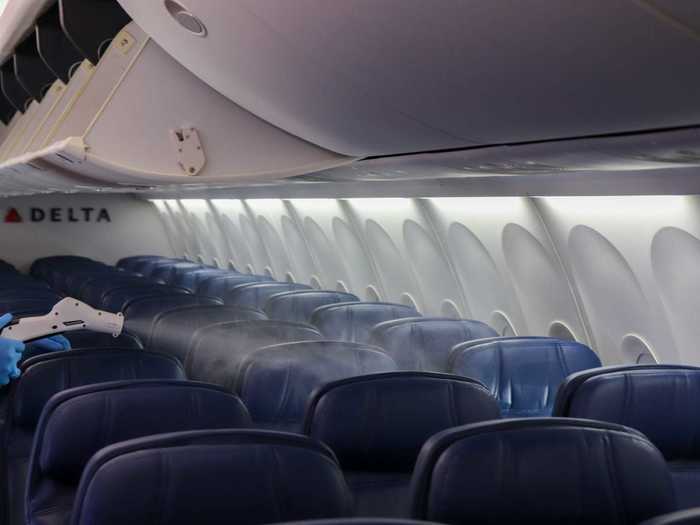
Once the pilots, flight attendants, and gate agents are all in agreement that the aircraft has been thoroughly cleaned, only then can boarding begin.
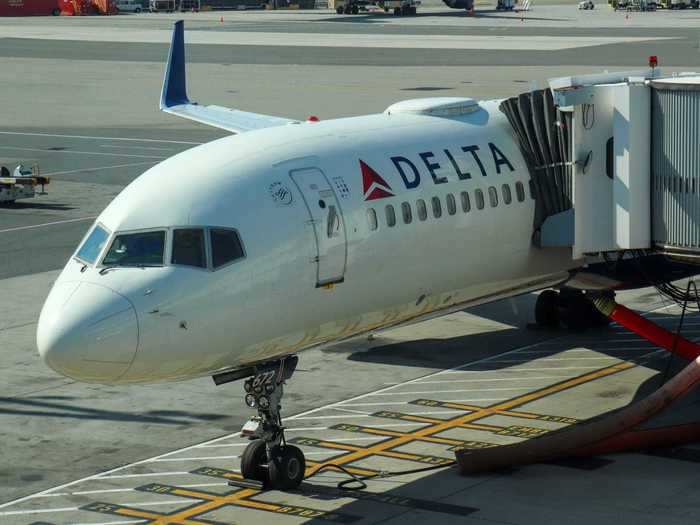
Back in the terminal, Delta then boards the aircraft from back to front.
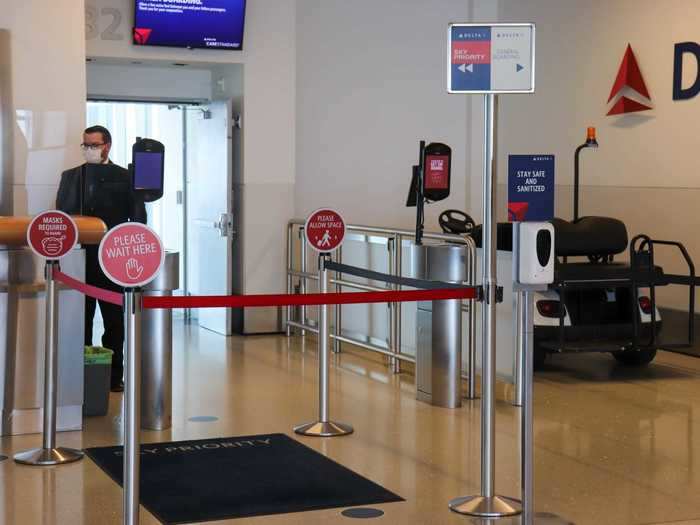
It's another social distancing measure that ensures passengers in the back don't have to walk past a planeload of people to get to their seats.
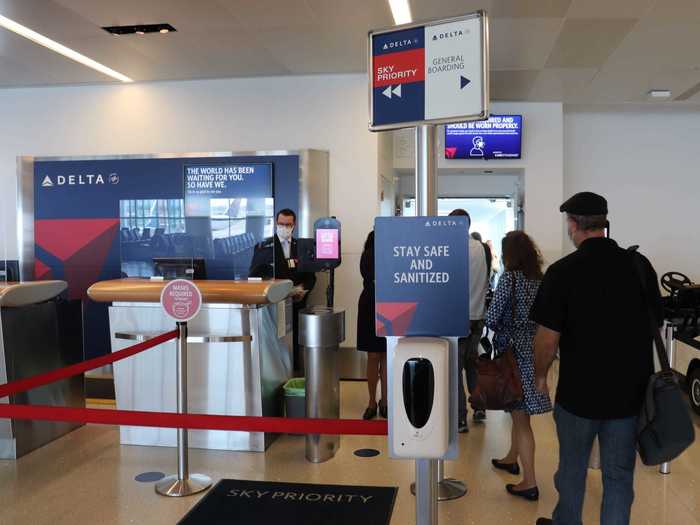
Here's where passengers on eligible flights would look into the camera for biometric boarding.
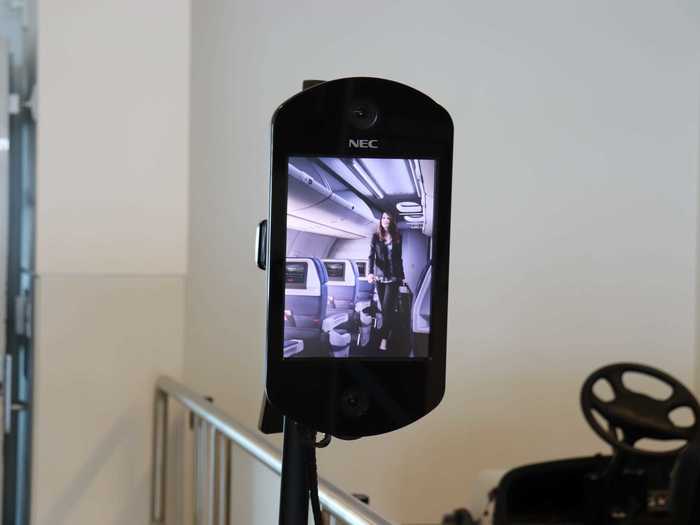
Boarding is done in rows of five to reduce jetway crowding but more placards have been installed as a precaution.
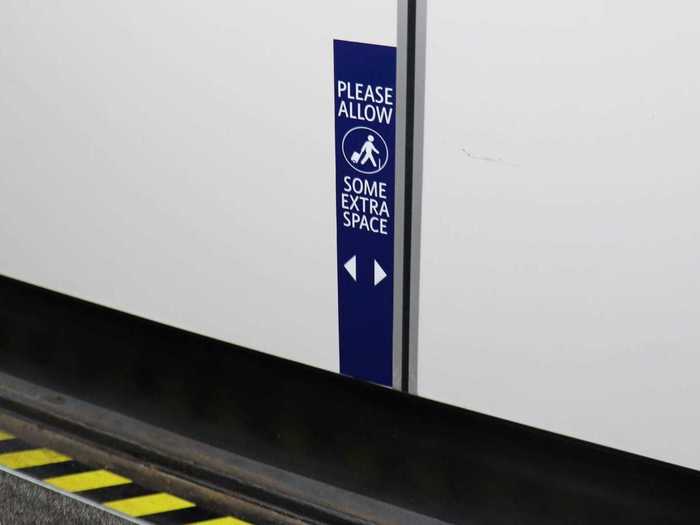
Passengers are given two items as they board the plane, a mask kit...
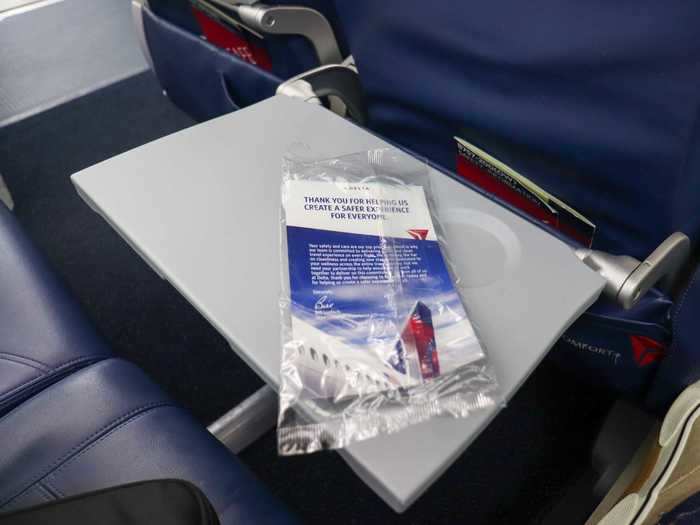
And Purell disinfecting wipes.
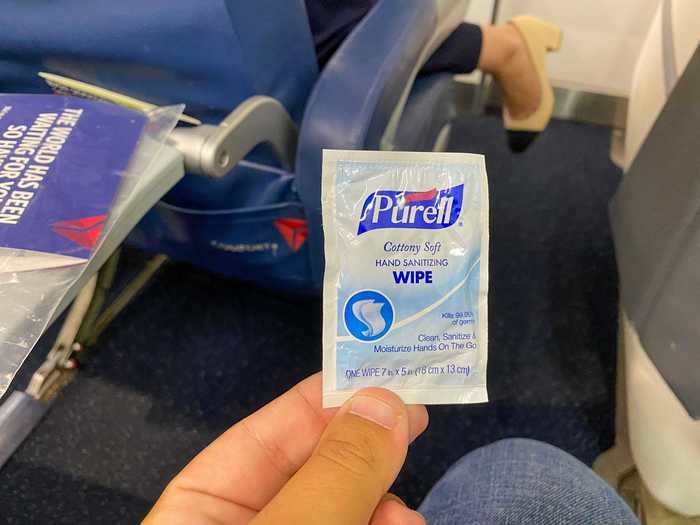
Inside the mask kit is a disposable mask, two single-use Purell packs, and an explainer on Delta's new safety measures.
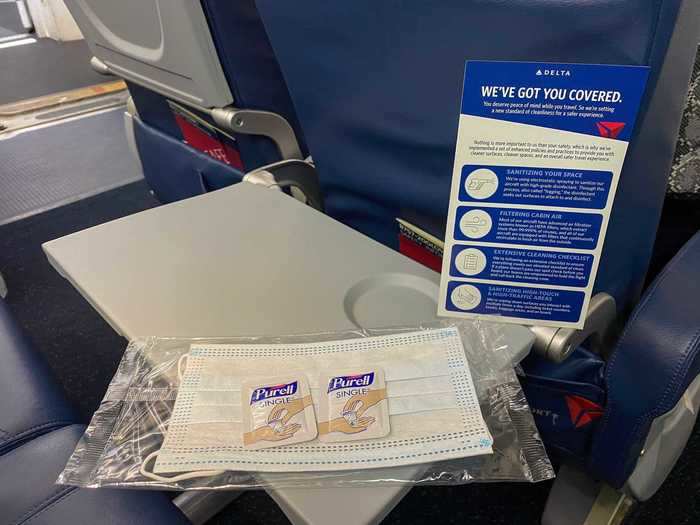
New scripts have also been made for flight attendants with more reminders about Delta's safety protocols, as well as a gentle reminder that masks must be worn at all times, except when eating and drinking.
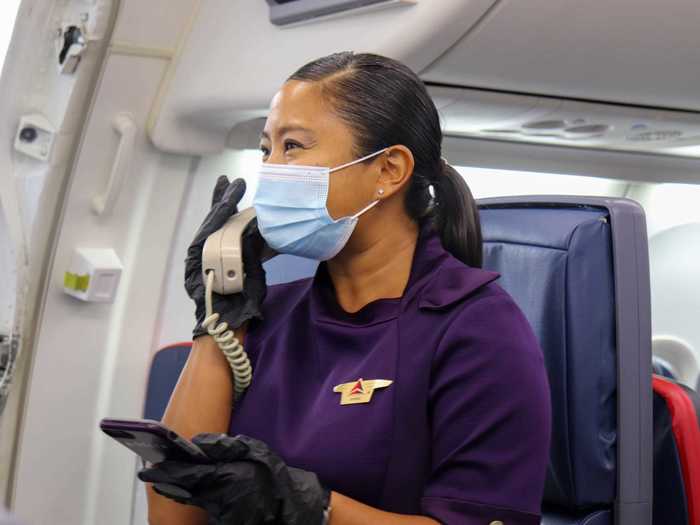
Once in the air, the in-flight service has also been augmented as flight attendants now pass around a snack bag with a water bottle, two snacks, a napkin, and more packets of Purell.
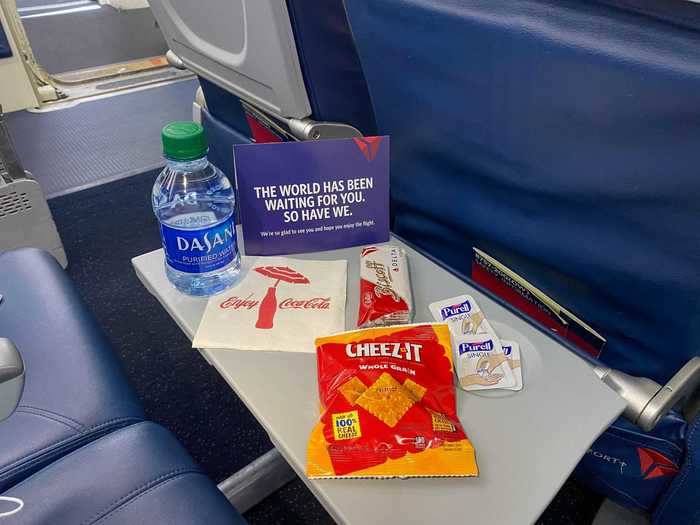
Small touches have also been introduced including the installation of hand sanitizer bottles outside each lavatory for easy access and extra cleaning supplies being stocked for flight attendants to use mid-flight if need be.
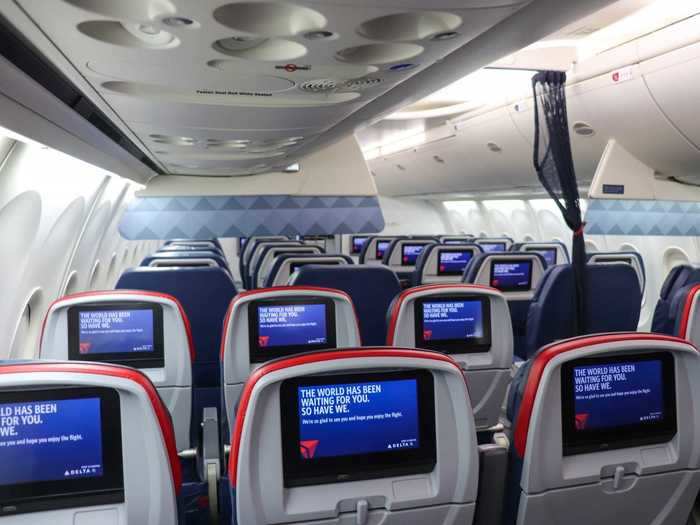
And then when it's time to deplane, flight attendants remind passengers to remain seated until it's time for their row to get up while messages on the seat-back screens tell passengers to "be mindful" when exiting the plane.
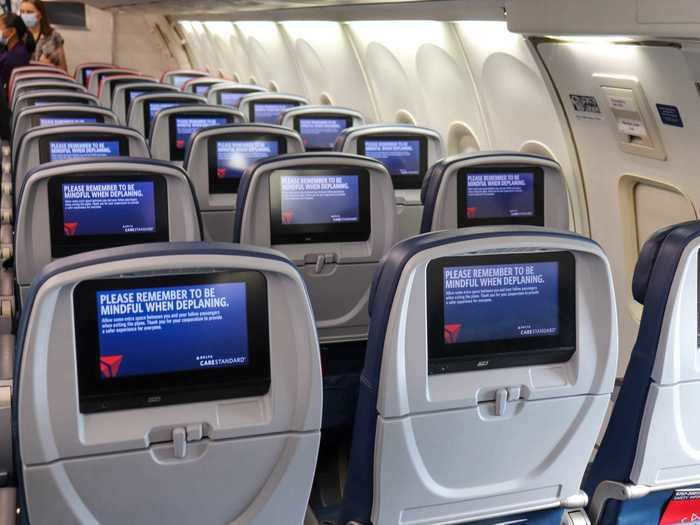
Delta's key strategy here is in-your-face messaging to ensure peace of mind. At every turn, the airline is reminding passengers that what they're doing is safe because all precautions have been taken.
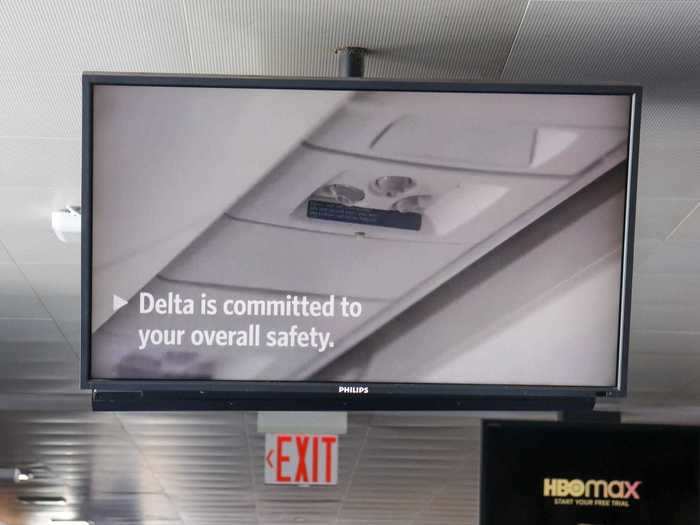
As most of the American public has still yet to return to the skies, the strategy will hopefully help ease them back onto airplanes.
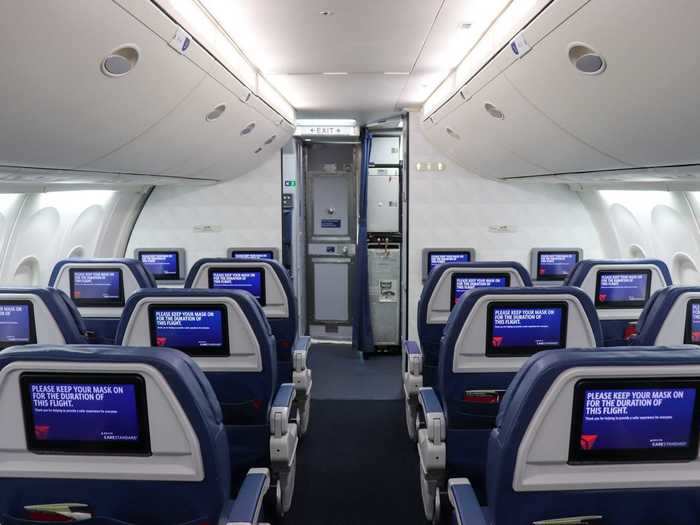
READ MORE ARTICLES ON
Popular Right Now
Popular Keywords
Advertisement